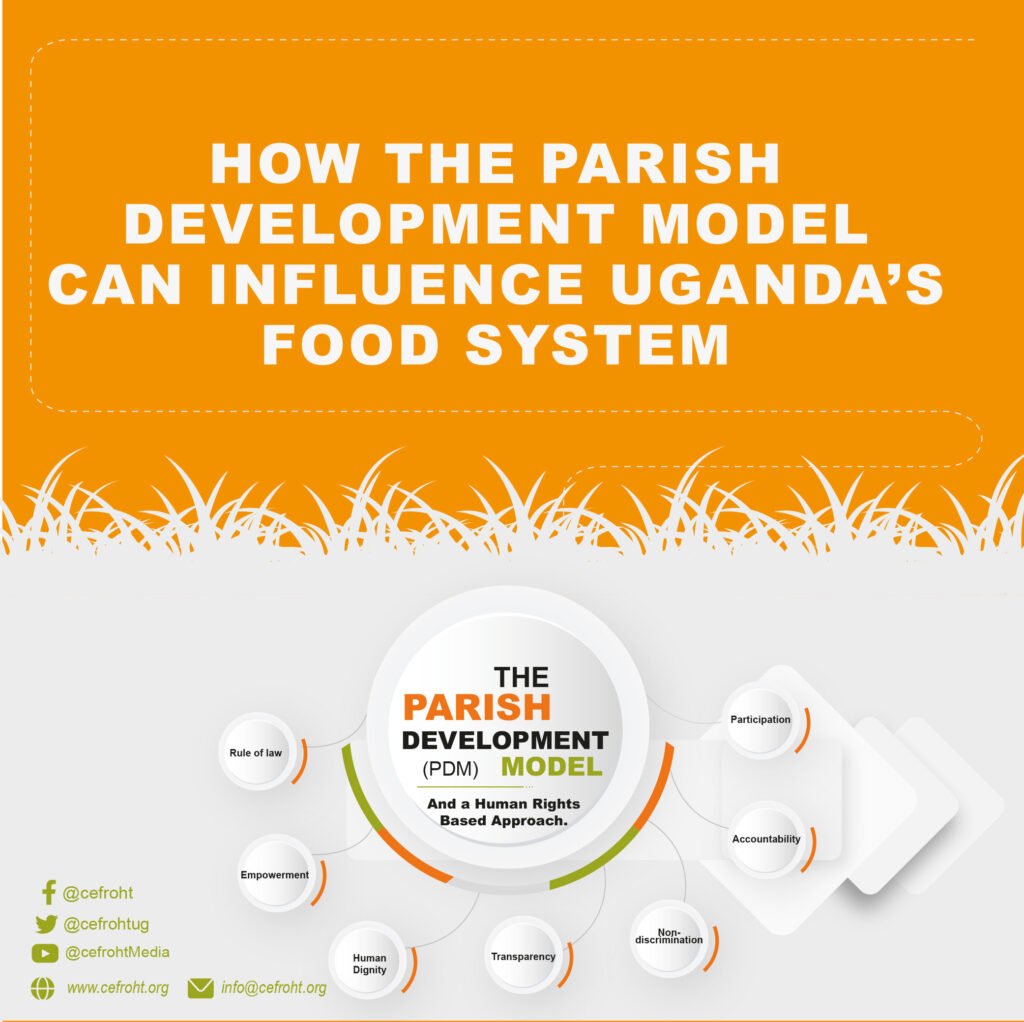The Government of Uganda is implementing the Parish Development Model (PDM), a last mile strategy for service delivery aimed at improving incomes and welfare of all Ugandans at household level. The PDM is an NDP III implementation mechanism by both the State and Non-State Actors to achieve inclusive development at the parish level in a coordinated and participatory manner. Implementation of the PDM is founded on an existing policy and legal framework including; The Constitution of the Republic of Uganda (1995 as amended); The Local Governments Act Cap-243; The Cooperative Societies Act; The National Co-operative Policy (2011); The National Financial Inclusion Strategy (NFIS 2017 – 2022); The PDM SACCO Byelaws; and The PDM Guidelines.
The PDM has thus been packaged as a master plan for accelerating wealth creation and improving the quality of life of Ugandans. According to the Parish Revolving Fund (PRF) User Handbook, the minimum package of services to be delivered under the PDM should enable every citizen in Uganda to have access to the basic human needs of: food, clothes, shelter, medicines, security, physical infrastructure (electricity, roads, rail, ICT), health, education and spirituality. PDM is targeting the agricultural sector and is thus an inclusive program on a large scale.
The agricultural sector is the backbone of Uganda’s economy, employing about 70% of the population. Agriculture is the central pillar in the livelihoods of the rural poor who lead a subsistence life. For this reason, agricultural development is one of the most powerful tools to end poverty and boost shared prosperity. It is therefore no surprise that the first pillar of the PDM is agricultural value chain development (Production, storage, value addition, processing and marketing), which also translates to development of a food system, essentially comprising four components, that is, food production, processing, distribution and consumption. The PDM therefore promotes a value chain approach and consequently seeks to support farming enterprises with a high return on investment along the agricultural value chain.
Through the PDM, Government is promoting a number of agricultural enterprises that will intensify the production of food crops and livestock products including coffee, fruits, beef and dairy, fish, poultry, piggery, maize, beans, cassava, etc. The PRF user handbook lays out guidelines for farmers to manage their enterprise so as to reap economic benefits. The program will therefore reorient agricultural priorities from producing low quantity and low quality food for home consumption to empowering subsistence farmers to produce high quality and healthy food for the market and consumers.
At production level, the PDM will support subsistence households with funds necessary to purchase agro-inputs. In Uganda, smallholder farmers produce most of the food we eat, doing so on a fraction of land and with minimal resources. This has made the food systems unsustainable as many farmers lack sufficient tools and resources to produce good quality food. Therefore, to ensure that the cost of production is sustainable for these households, Government, through the PDM, will support their access to financial services (loans, savings, payment systems, insurance and leasing) which will strengthen their capacity to produce good quality food. Under the PDM, all households in a given parish are organized into enterprise groups along the priority agricultural value chains thus linking them to quality agro-inputs, tailored technical assistance (including business development services, extension services), guaranteed markets, subsidized credit etc.
In the urban areas, PDM will support enterprises engaged in storage, value addition or processing of food, for instance processing of juice (from any agricultural produce), chicken roasting, Chapatti making, popcorn business, meat roasting (muchomo), brewing, buying and selling of produce, etc. The PDM will also offer an array of services e.g. roads, energy, storage etc. that will enhance the distribution of and access to food within the population, consequently strengthening the food system in Uganda. If the PDM is implemented within the legal framework, there will be transparency, checks and balances and accountability in the Food and Agriculture sector leading to food safety, environmental health, food security and a sustainable food system.

